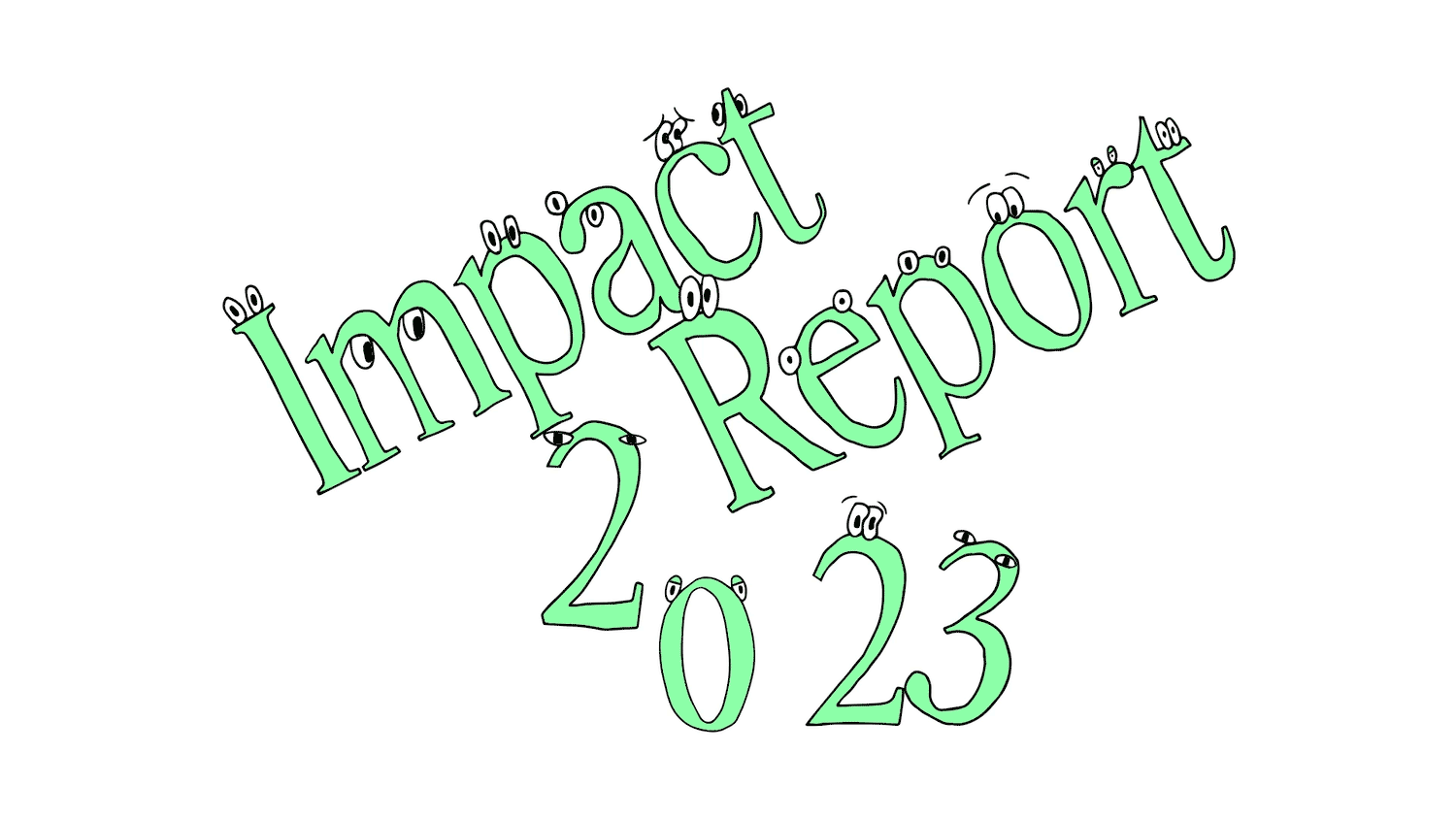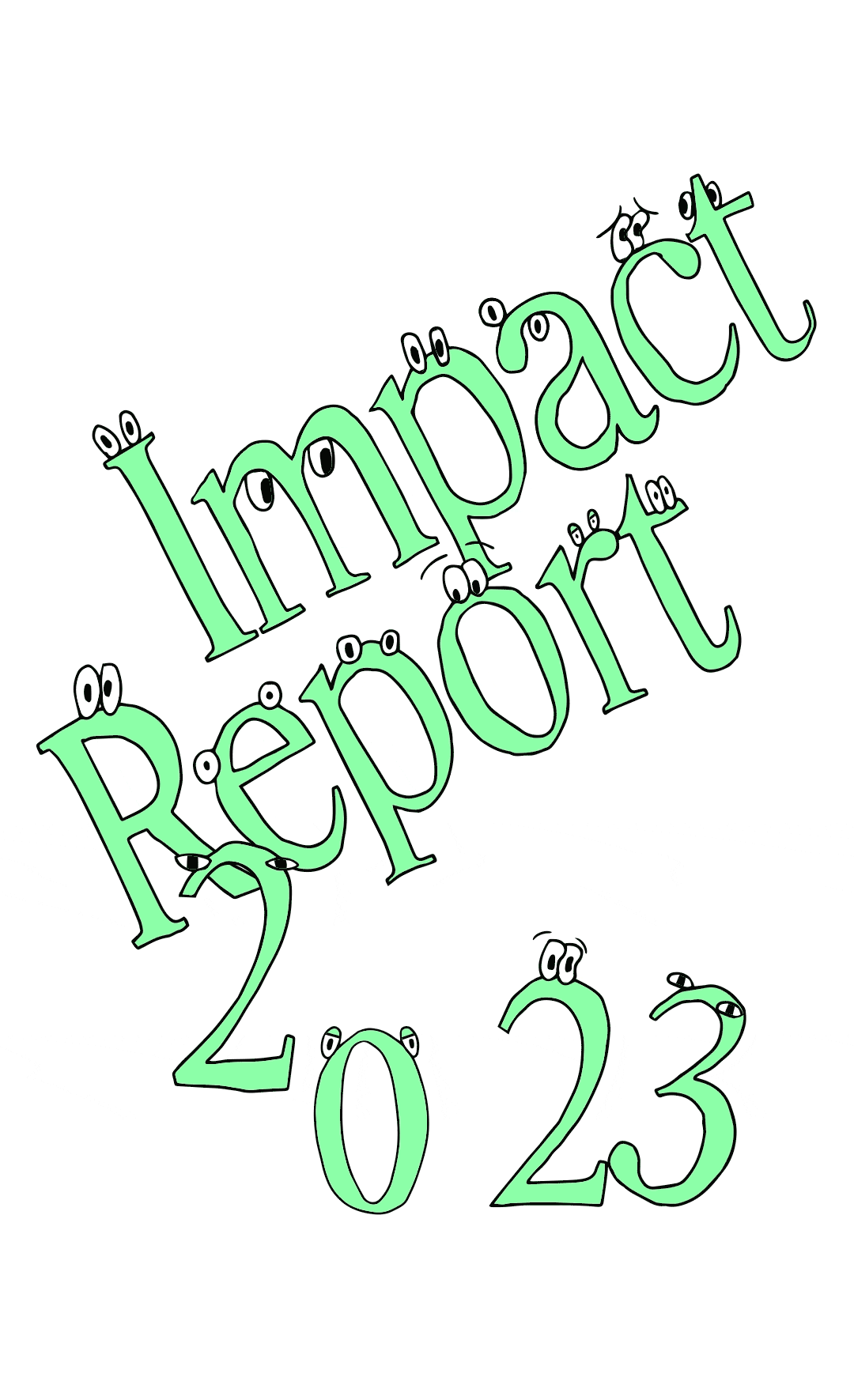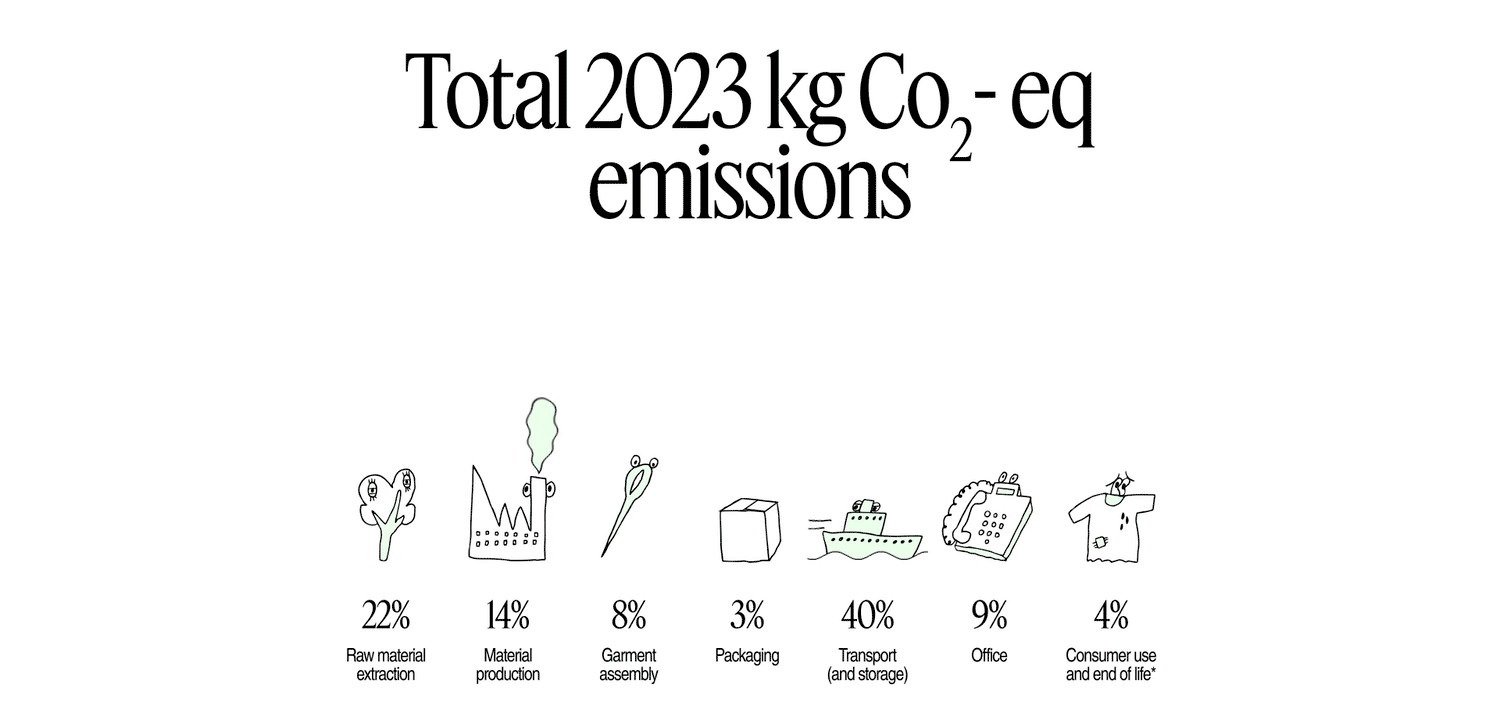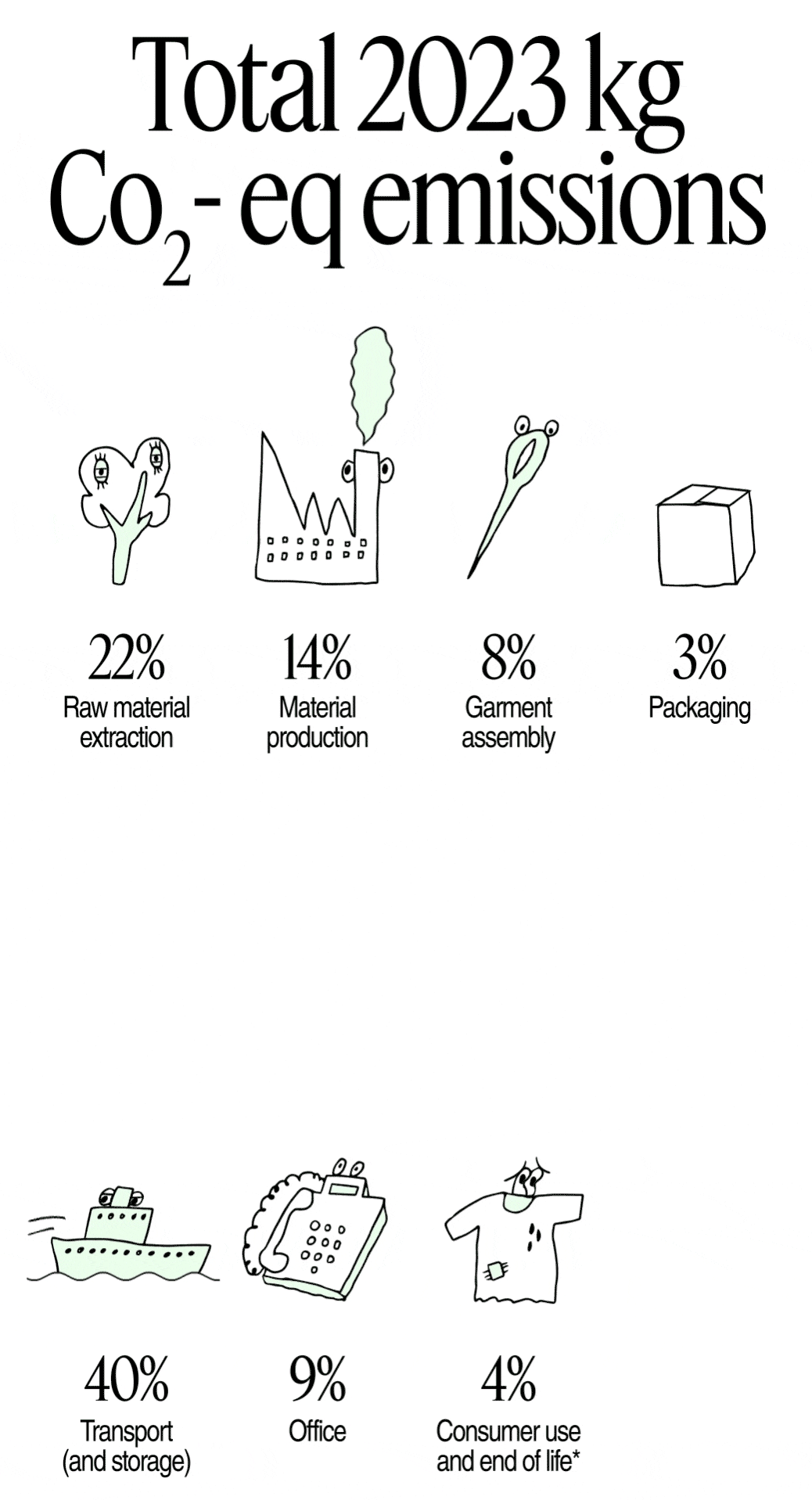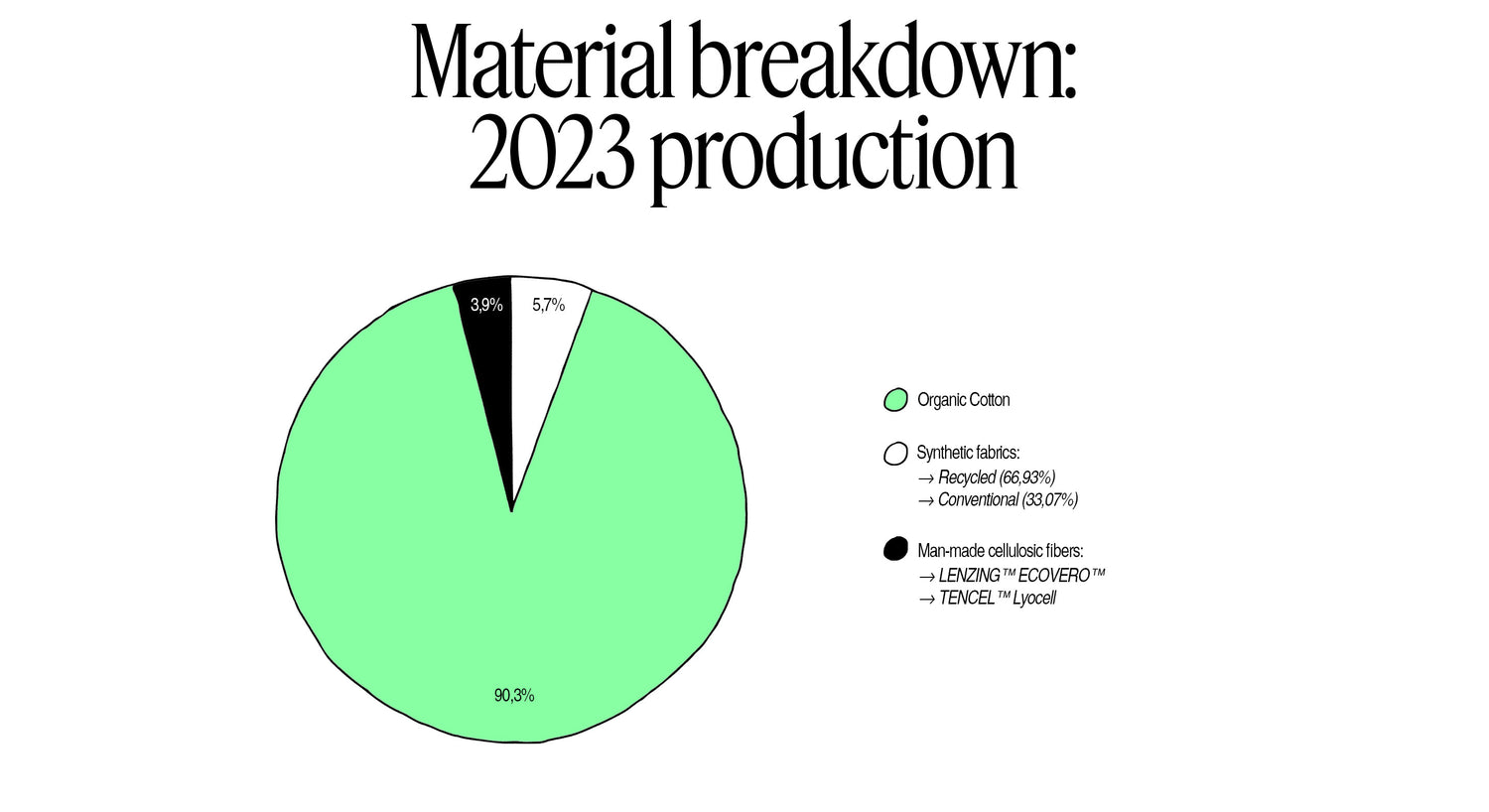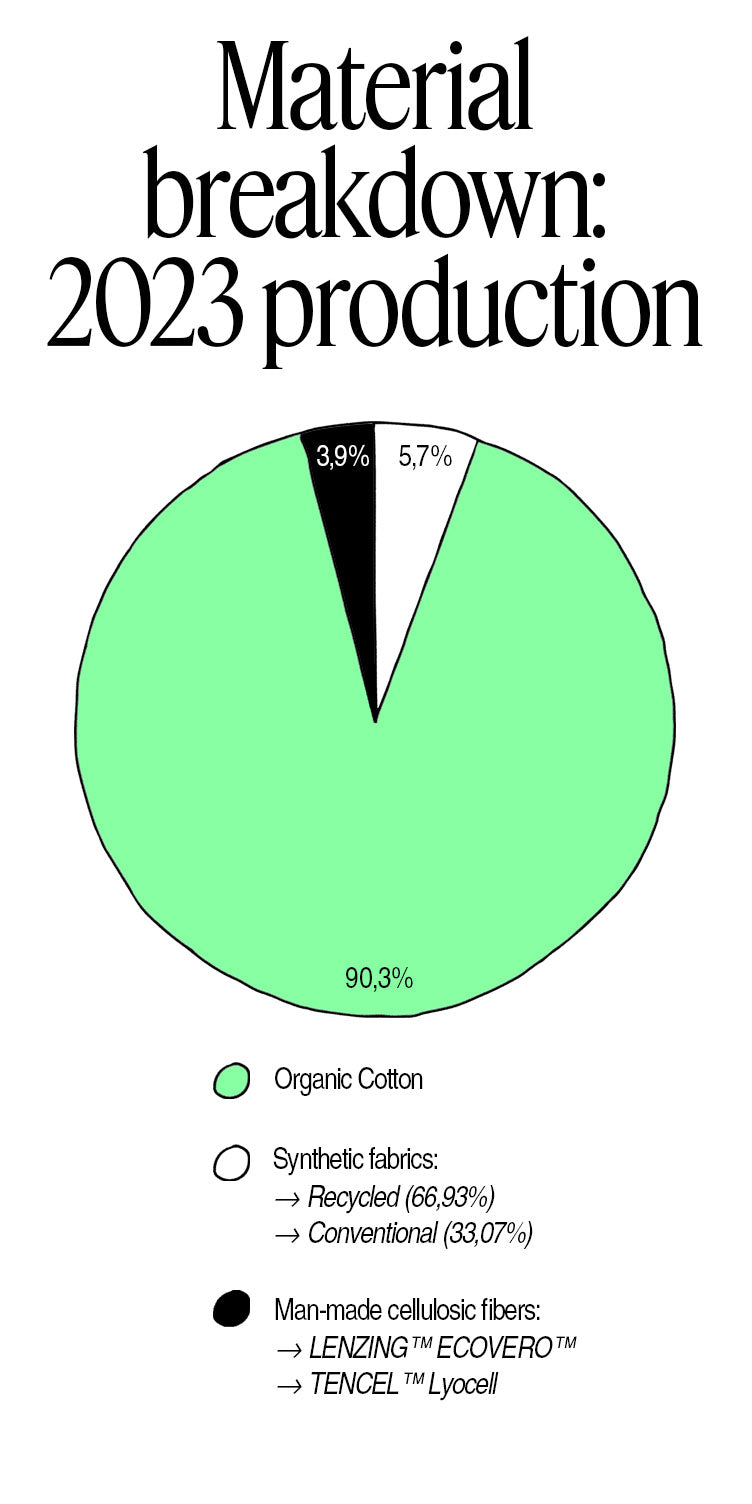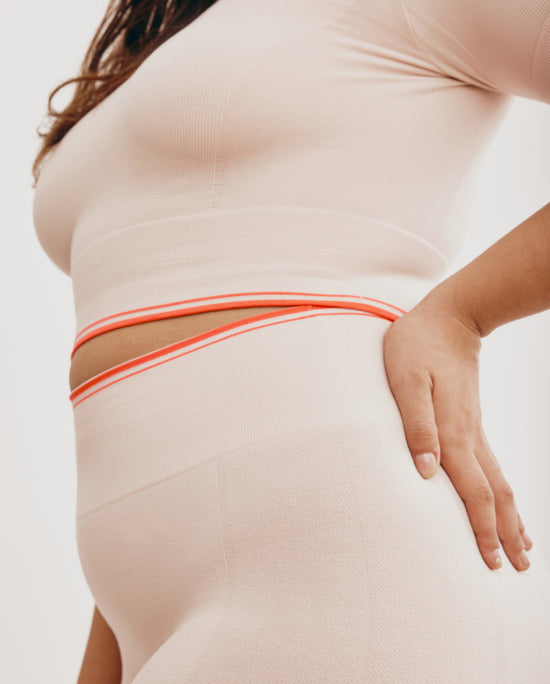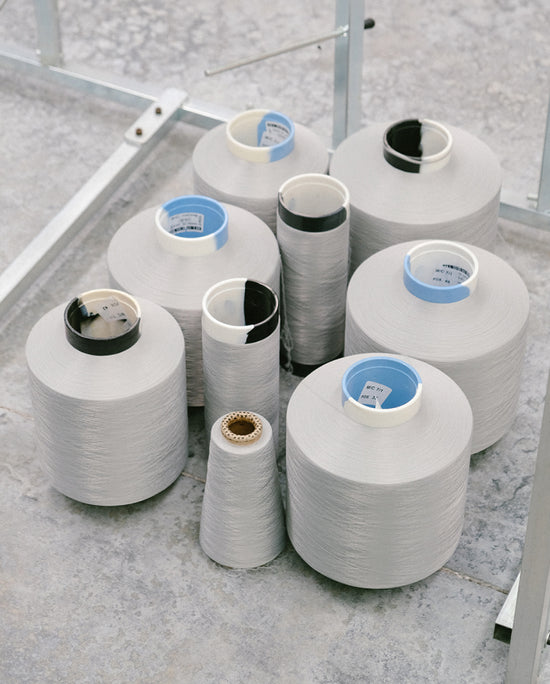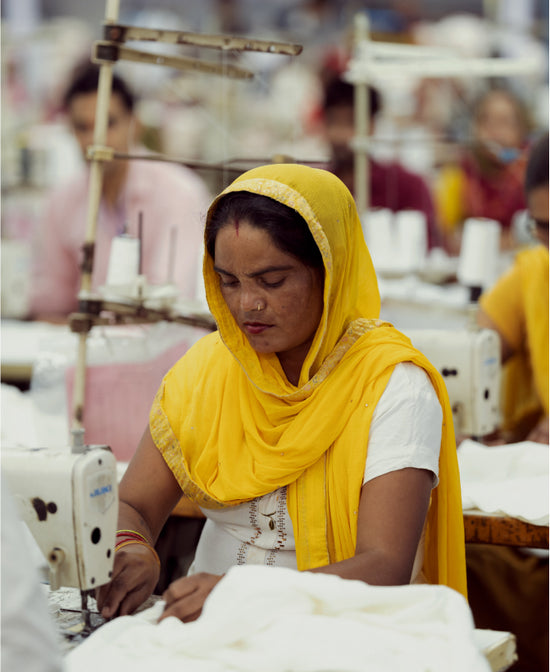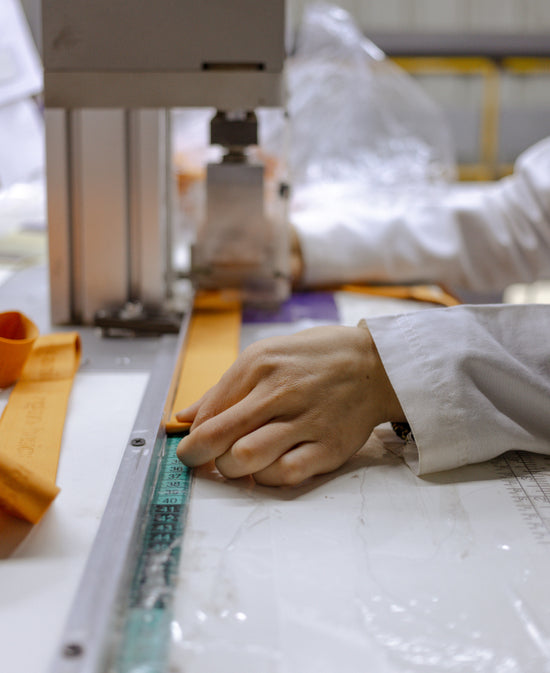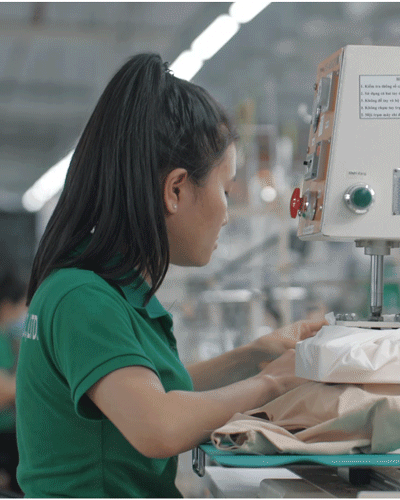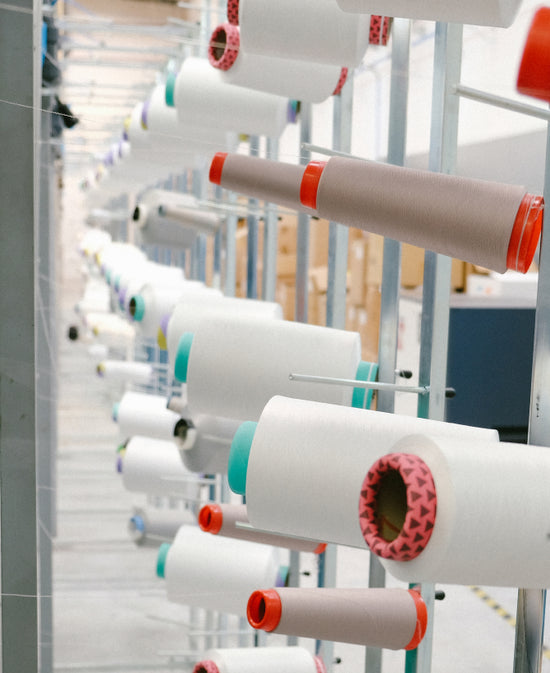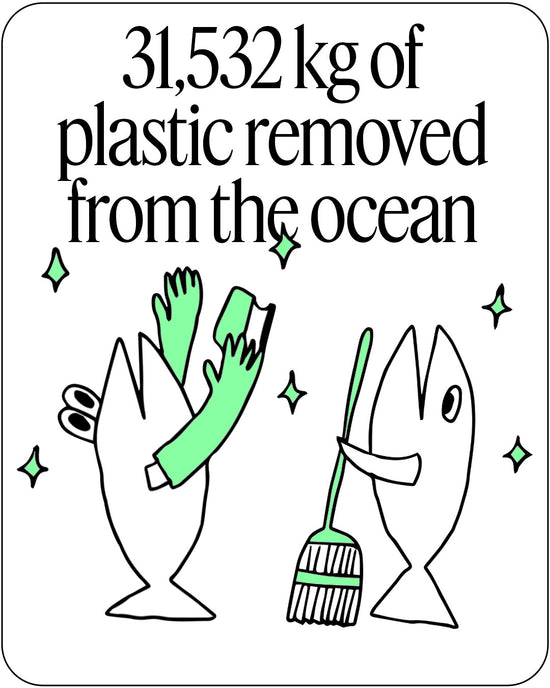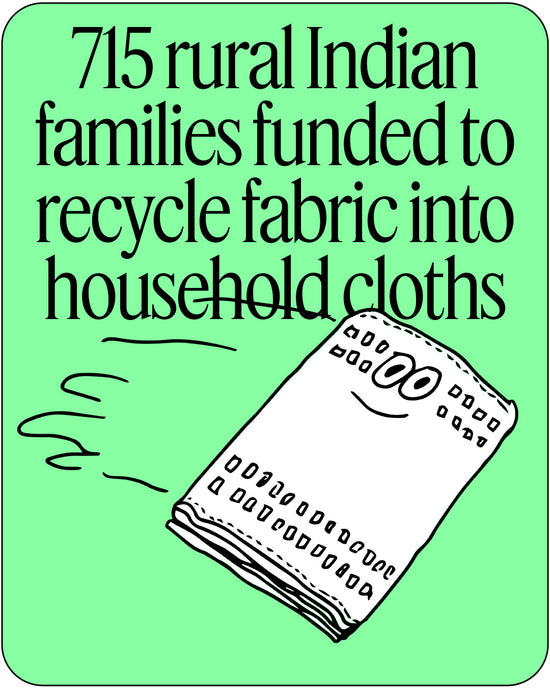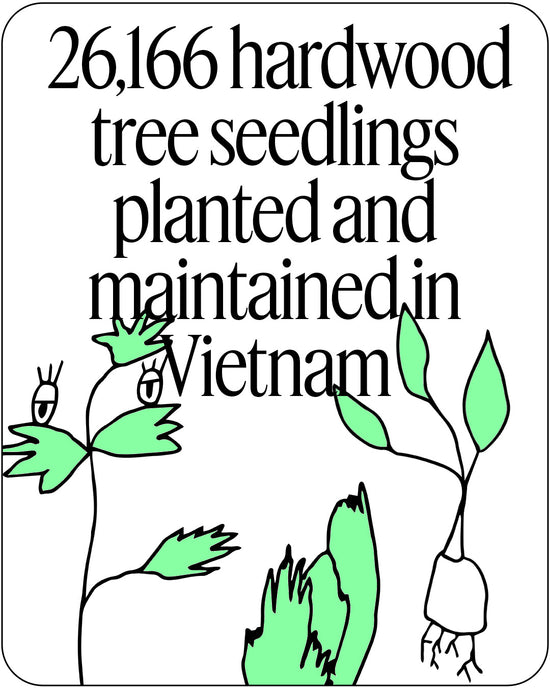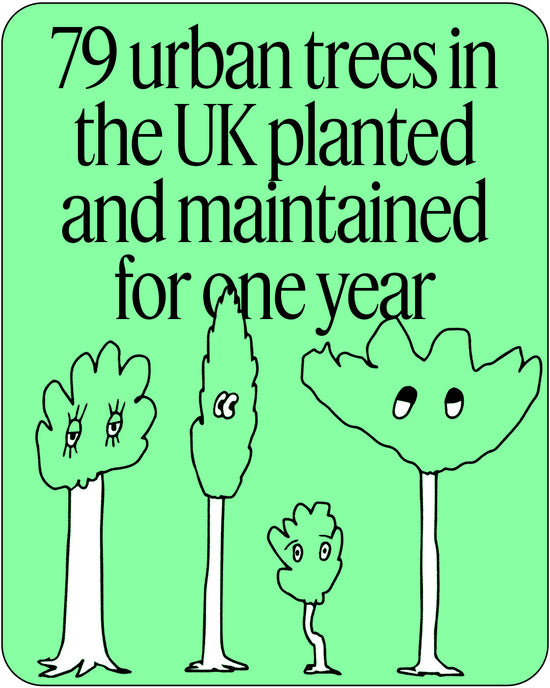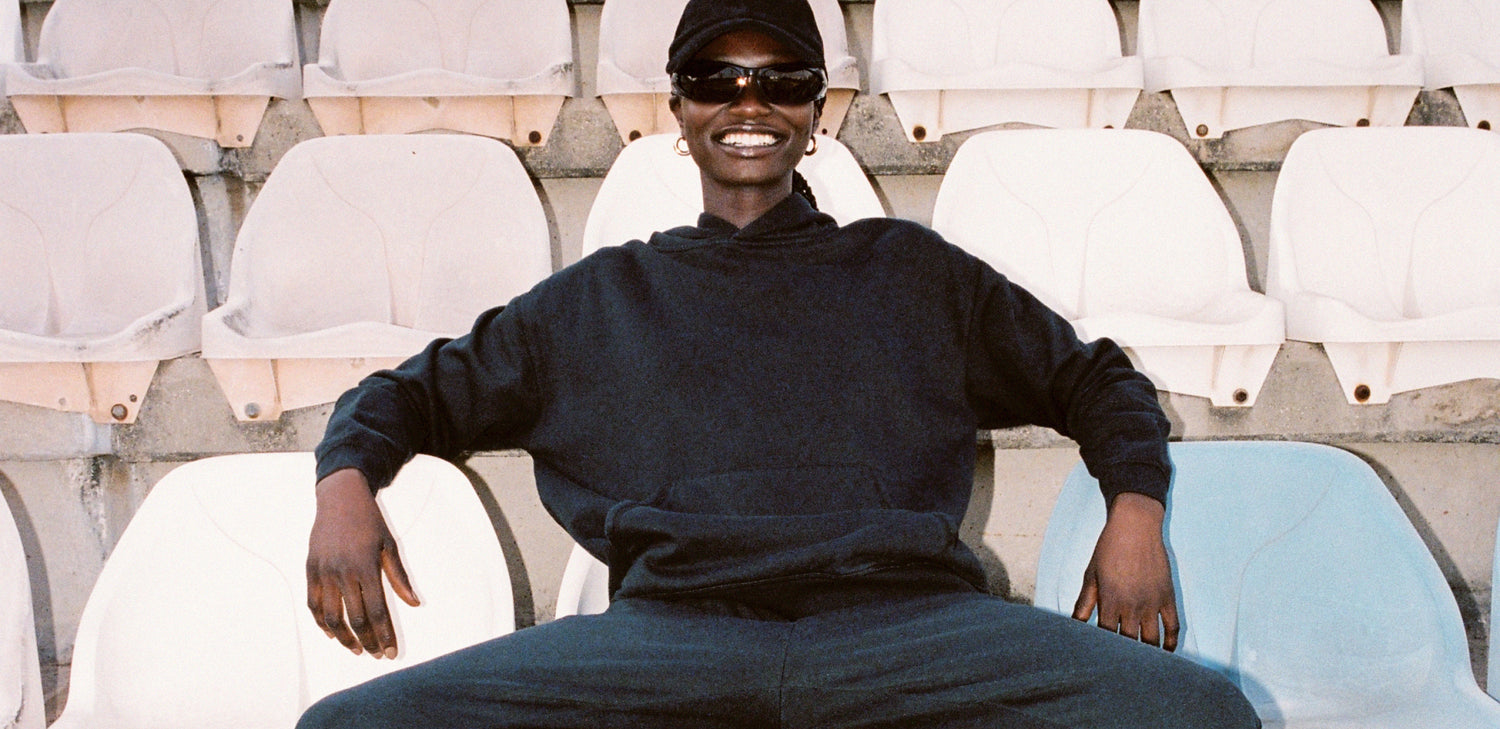
Impact Report 2023
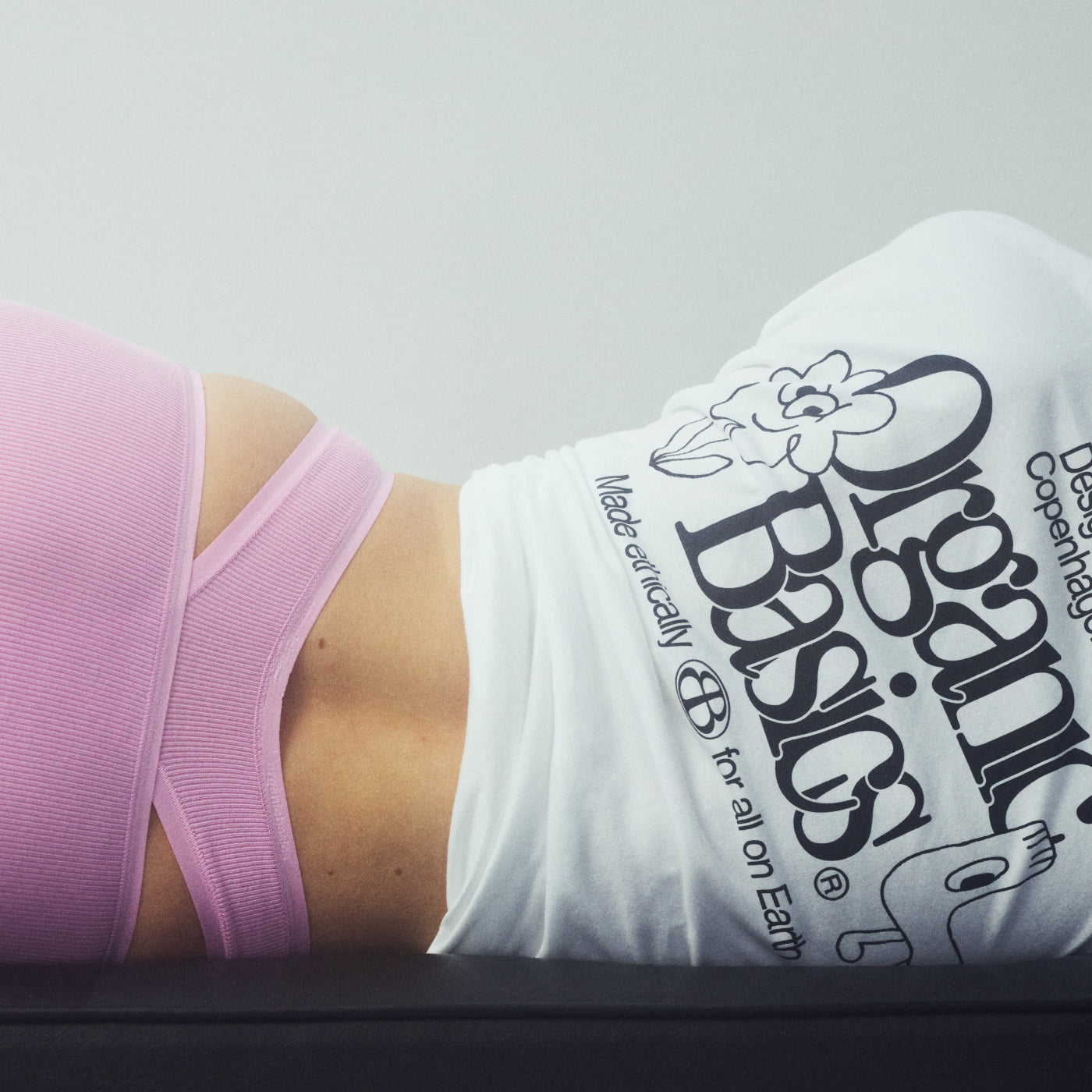
2023, one of our most transformative years as a brand – also visually!
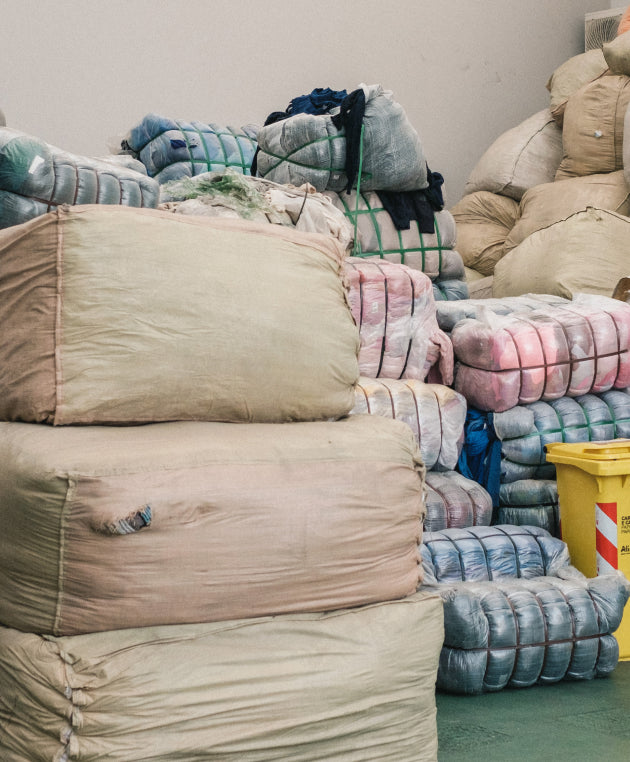
Transparency is a fundamental first step towards a better fashion industry.
Organic Basics had a wild 2023 – one of our most transformative years as a brand. We embraced a new look, expanded our global partnerships and supported many causes close to our hearts. As a fashion brand, we hold a responsibility to create clothes that you can feel good in, knowing that they were made with care for people and the planet. With all of the changes in 2023, we kept our sustainability values at the forefront of our transformation.
Transparency is a fundamental first step towards a better fashion industry. It’s impossible to know the scale of the industry’s issues, when brands hide the truth. Writing an Impact Report is our chance to show you what we’ve been doing, the good and the bad, and to figure out how we can do better. Nobody’s perfect, and neither are we, but we are committed to transforming the fashion industry for the better. As a brand, we can’t do this on our own, but collectively we can work towards a global economy that uses business as a force for good.
The data
The science has been crystal clear for years – the Earth is warming, and we need to act. At Organic Basics we’re always trying to have a positive impact but, hard as we try, the garments we create can have a negative impact on the planet. We like getting help from experts, so we worked with One Carbon World (again) to understand our overall impact as a business (Scope 1, 2 and 3 emissions for you experts). They also help us offset these emissions, but we know that reducing them in the first place is the best move we can make for the planet.
In 2023, we also partnered with Made2Flow, a Berlin based start-up, to help us calculate the impact of our garment production across our supply chain. Collecting this information is essential – to show you the impact of your purchases, and more importantly to know what we’re doing wrong, so that we can fix it. Made2Flow did a Life Cycle Assessment (LCA) on each of our products produced in 2023, all the way from raw material production through to every product’s arrival at our warehouses in Denmark and Mexico. You can read more about their methods here.
Before we get into the data, we want to make a few things clear. When working with Made2Flow, we didn’t calculate the impact of our garments after their arrival at the warehouse. This means we didn’t include the impact of their storage, usage (e.g. washing) or the end of their life (e.g. how they’re disposed of) in product-specific calculations. In the past we did include this detail, and to be consistent we will include it in the future. To make sure that we were as accurate as possible this year, despite missing this information, One Carbon World estimated the impact of our warehouses based on our financial spend. This means that we’re still offsetting those storage emissions, but they weren't included on a product-level.
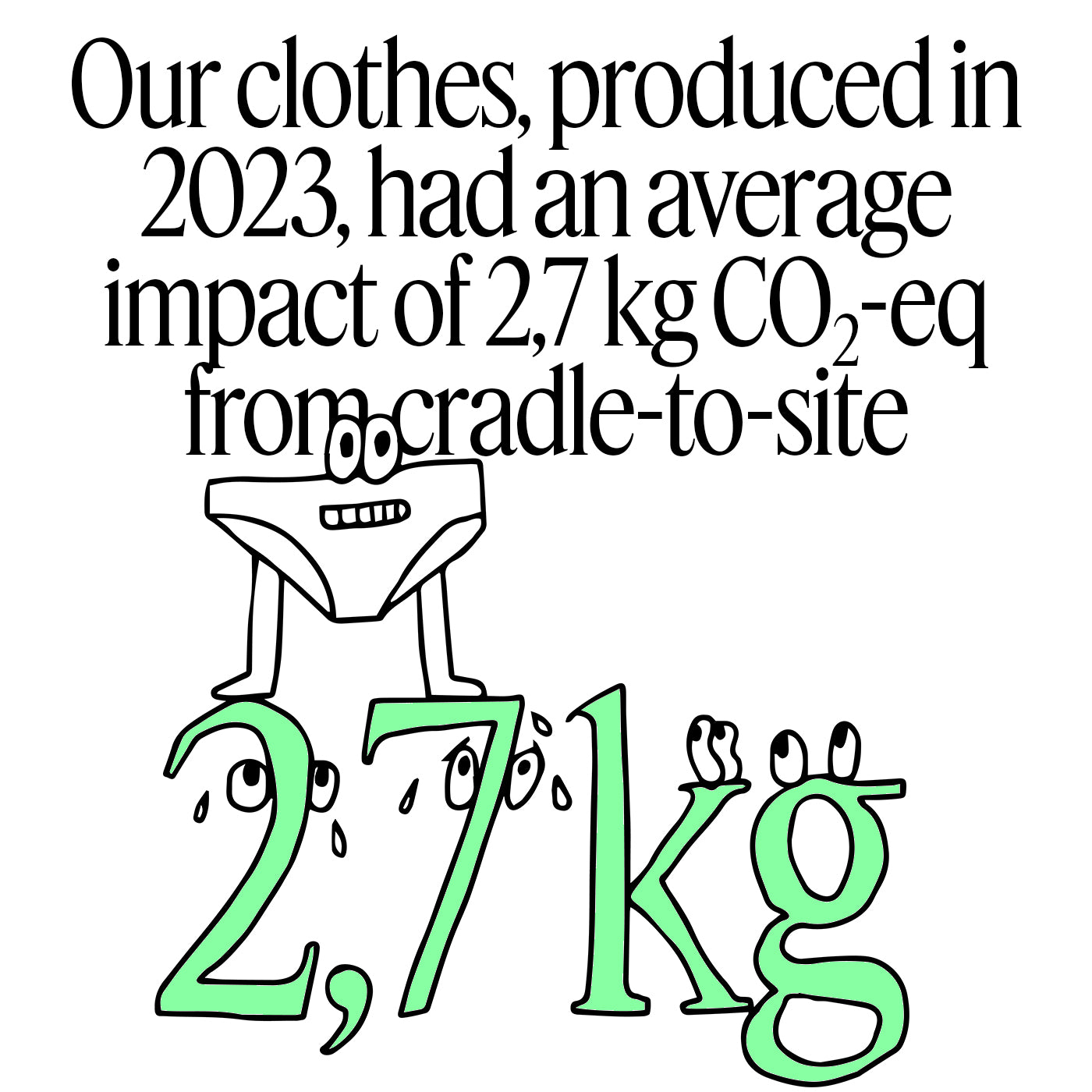
Made2Flow did a Life Cycle Assessment (LCA) on each of our products produced in 2023.
The discrepancy between our LCAs also means that it is difficult to compare the impact of our garment production with previous years. According to our data in 2022, our garments produced an average of 3.85kg CO2-eq, compared to 2.7kg CO2-eq in 2023. While it looks like an improvement, we can’t say that our new garments have a lower impact than our old ones because the LCA calculations are not as extensive. We know this, and we’ll fix it next year, but we want you to know too so that it’s clear we’re not trying to look better than we are.
Producing things means contributing to a system that is already overflowing with newness. Exactly how much “newness” is impossible to know, when brands don’t publish their production numbers. This year, we supported The Or Foundation’s “Speak Volumes” campaign by publishing our 2022 production numbers: 182,714 units to be exact. The campaign calls on brands to be transparent about their production quantities, because it’s pretty hard to clean up the global fashion waste problem when you don’t know what you’re dealing with.
We'd like to jump ahead and state our 2023 production numbers, too: 306,037 units.
Materials
Choosing low-impact materials is fundamental to our commitment to be a force for good in the fashion industry. In 2023, 90% of our garments were made with GOTS-certified organic cotton. We added to our Recycled Materials collection, with recycled nylon pieces and we expanded our use of LENZING™ materials to include not only TENCEL™ Lyocell fibers, but also LENZING™ ECOVERO™ – a sustainable viscose. Certifying our products is one of the safest ways that we can ensure our products are made with care for the environment and the people who make them. We’re certified by GOTS (Global Organic Textile Standard) and GRS (Global Recycled Standard), and most of our products (except some recycled wool) are PETA-Approved Vegan. These certifications, with their annual audits, help us verify that our partners always work according to strict environmental and social sustainability standards.
Note: The material breakdown measures our garments' main materials excluding accessories, e.g. bra padding.
Get to know our materials: — Get to know our materials:

Certifying our products is one of the safest ways that we can ensure our products are made with care for the environment and for the people who make them.
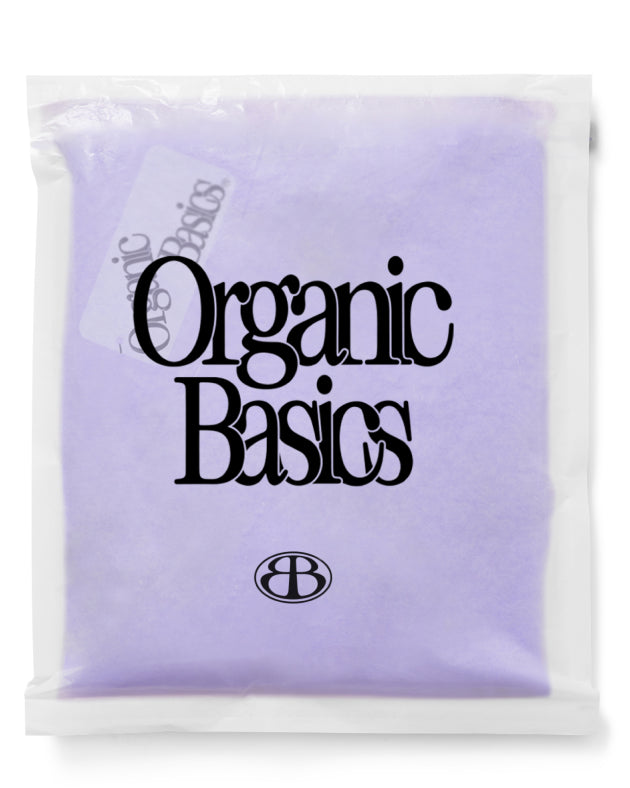
By changing our individual product packaging from cardboard boxes to glassine bags, we reduced packaging emissions by 30% per product.
Small actions,
big impact!
We have always used recyclable packaging, but in 2023 we worked to create lower-impact packaging by using glassine bags instead of cardboard boxes. For hygiene and storage reasons, our garments need to be carefully packaged but storing one t-shirt in a cardboard box is a bit extreme. It wastes space when transporting products from our suppliers to our warehouses, and is unnecessarily expensive and resource intensive. By changing our individual product packaging from cardboard boxes to glassine bags, we reduced the packaging emissions by 30% per product (from 0.143kg CO2-eq in 2022 to 0.1kg CO2-eq in 2023).
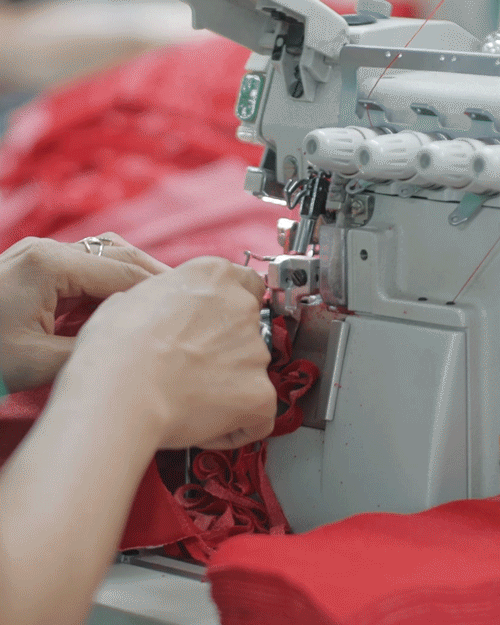
In 2023, we expanded our suppliers to include factories from outside of Europe.
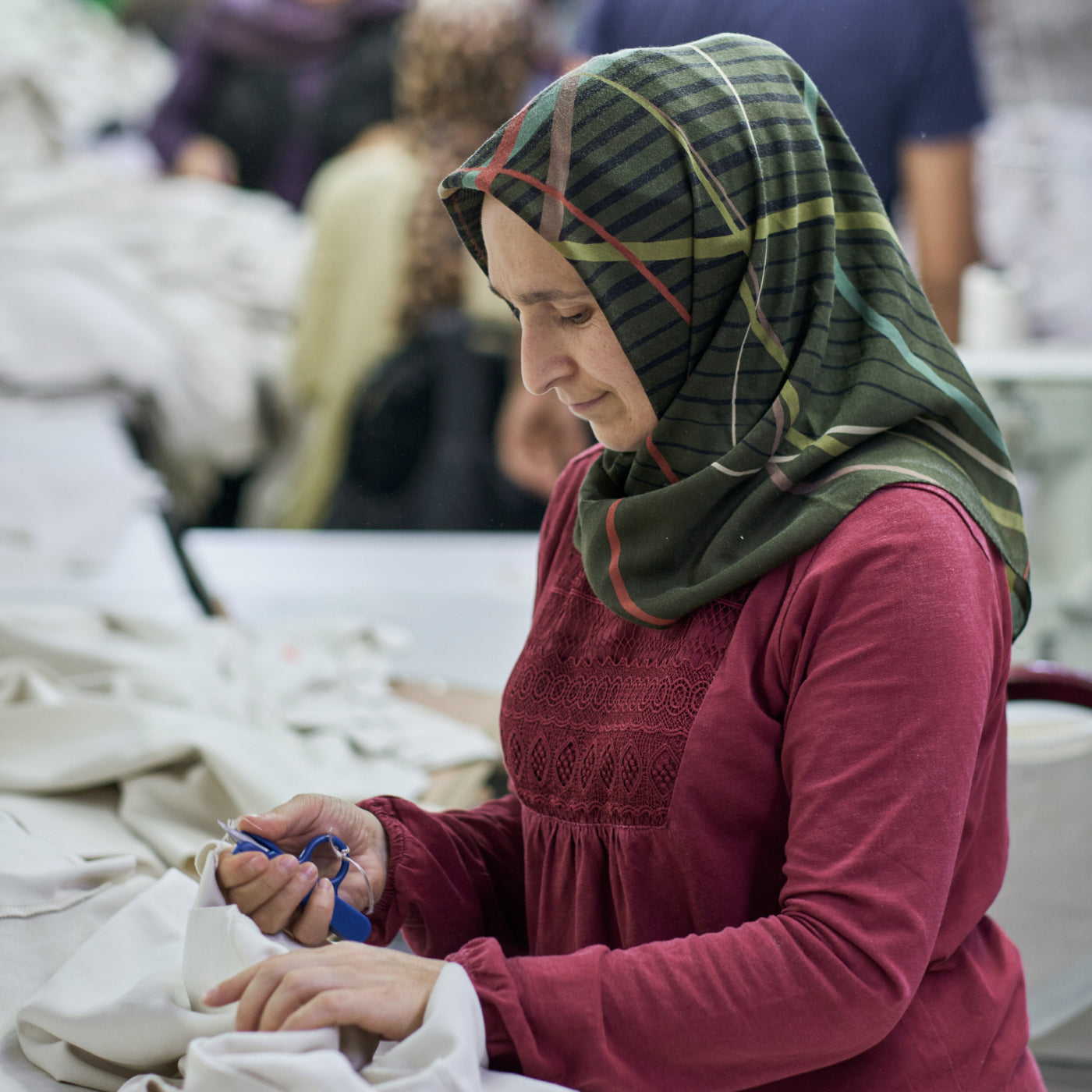
Step inside the factories and meet the people who make it all happen.
Our Factories
Like we said, 2023 was quite a year of transformation for Organic Basics. Our new ownership, Delta Galil Industries, has given us some incredible opportunities. For the first time since Organic Basics was born, we were able to expand our suppliers to include factories from outside of Europe. As a Copenhagen-based brand, we were proud of our short European supply chain in the past. We realize now that it was a little close-minded (even Eurocentric) to think that this was fundamental to our sustainable business model. We didn’t have the capacity to monitor production that wasn’t close to home but now, thanks to our new ownership, we have the resources to carry out strict due diligence on our suppliers. Our new factories all hold the sustainability certifications that we’ve always demanded from our partners – they’re just a further distance from our headquarters in Copenhagen.
We created our ‘Meet the Makers’ campaign to introduce our new suppliers, the people who make our clothes, in a further step towards radical transparency. We had always kept those cards close to our chest, but we wanted to show that a “Made in Europe” label isn’t the only way to make clothes that respect the planet and the people who make them.
Stories from our factories — Stories from our factories
Inclusive Pricing
Towards the end of 2022, we carried out a brand audit to help us understand how Organic Basics was perceived by our customers. We realized that we needed to help make sustainable underwear and basics an easy option for our younger customers, who we know value our planet but don’t always feel they have the budget to buy in alignment with their sustainable values. We decided to listen and lower our prices – because we believe that buying ethically should be accessible to all.
Even with low prices, we don’t want to encourage people to buy more than they need. We’re not fans of ‘haul culture’ – so we don’t offer free returns for refunds, or include return labels in our packaging. We want you to think before you shop.
We know that there’s no buying your way to sustainability, but we want to help make sustainable fashion accessible.
Even with low prices, we don’t want to encourage people to buy more than they need. We’re not fans of ‘haul culture’ – so we don’t offer free returns for refunds, or include return labels in our packaging. We want you to think before you shop.
Social Impact
We’ve always loved supporting causes close to our heart, but this year we upped our game and got you involved. In May, we partnered with Beam Impact – a US based organisation that lets customers choose between four charities they’d like to support. In less than a year, with the help of our customers, we were able to donate $23,687 to a number of charities. Almost half of that was raised during our Black Friday campaign – we’re really proud of that.
What our impact looks like: — What our impact looks like:
We try hard to do good, and to do better, but we’re not flawless. As a fashion brand, our fuck-ups have a big impact so it’s important that we hold ourselves accountable.
Transport emissions
With all of the major changes that we went through as a brand in 2023, our production calendar suffered. Working with new suppliers is a huge transition, and this year it meant that we made late orders and had serious delays with our deliveries. This left us with next-to-no stock in our permanent collections. A majority of our new products were flown to our warehouses to remedy these stock issues, and to avoid having collections arrive two seasons too late. These decisions aren’t taken lightly, because we know that shipping products by sea can save an average of 1kg CO2-eq per product. Avoiding flying our products is one of the best choices we can make to be a sustainable fashion brand, and we didn’t make that choice enough this year.
Now that we have finally settled into the swing of things, we want to cut these emissions as much as possible. We’ve already set up a more organized production process, so that we won’t face the same delays in 2024 and we won’t need to rush to get items back-in-stock. Next year, we are committed to reducing our transport emissions as much as we can. But more on that below.
Extra stock
We try not to produce more than we can sell, but in 2023 we had a lot of old products lying unused in our warehouses. We donated to local shelters, hosted sample sales and offered discounts, but we didn’t manage to clear out all of our overstocked products. We settled on selling the remainder to discount retailers, to hopefully give the products a new lease-of-life.
Going forward, we will finally start working with the fashion calendar and its seasons. We still stand by the need for basics and avoiding trends, but planning around the seasons helps us to place orders on time, so that we can avoid flying products to our warehouses. We will continue with our baseline ‘never-out-of-stock’ collection, which includes all of the basics that our customers love. These will be in neutral and base colors, but we’ll extend the options to some seasonal fashion colors. Our fashion collections are seasonal and will only come back in stock if they’re a massive hit with you – so your feedback matters! This will also help us go back to our roots a bit – reducing the need for sales, limiting them to discontinued products and fashion items that weren’t a hit.
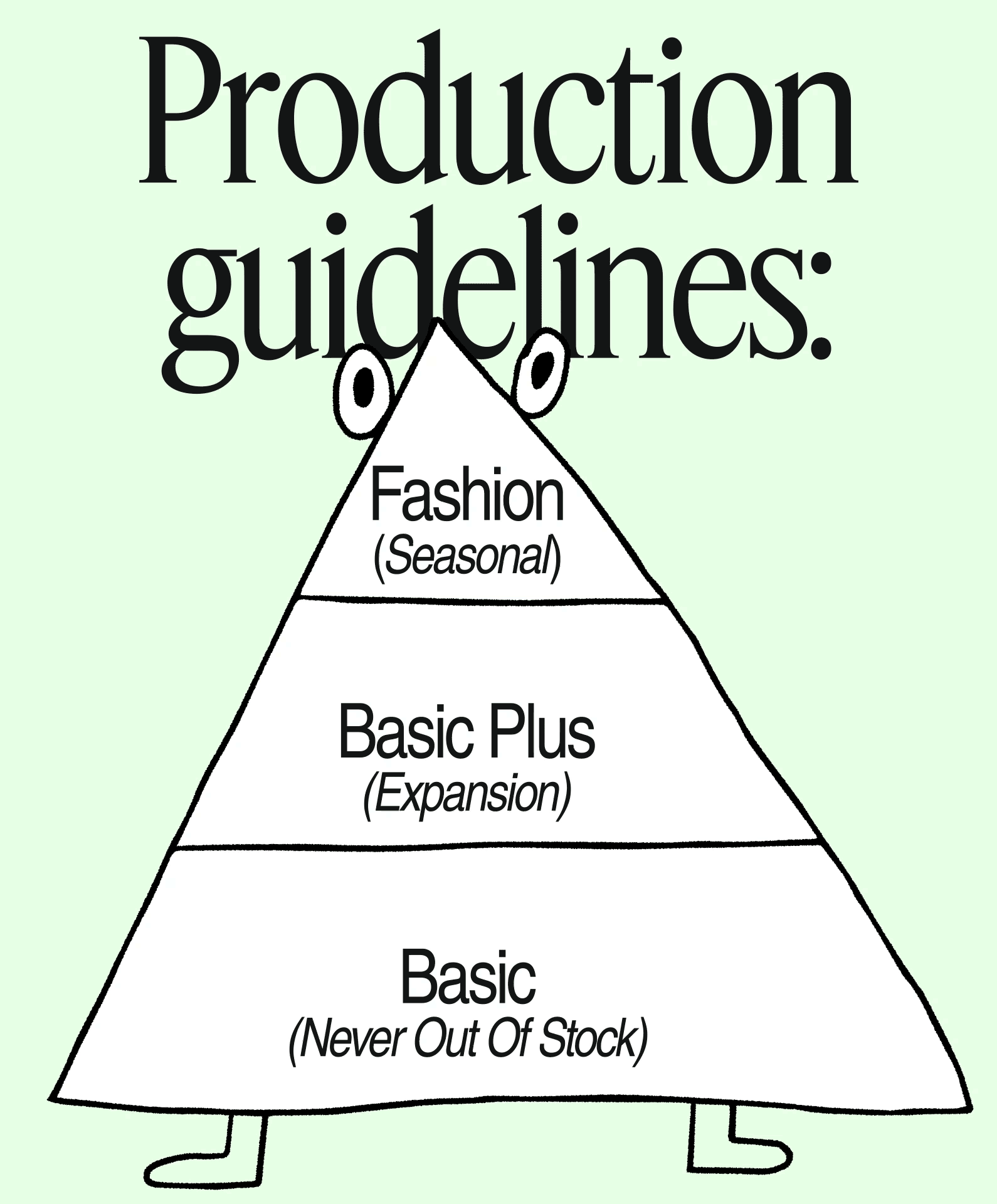
In the future we will start working with the fashion calendar and its seasons. We still stand by the need for basics and avoiding trends, but this will help us with better planning.
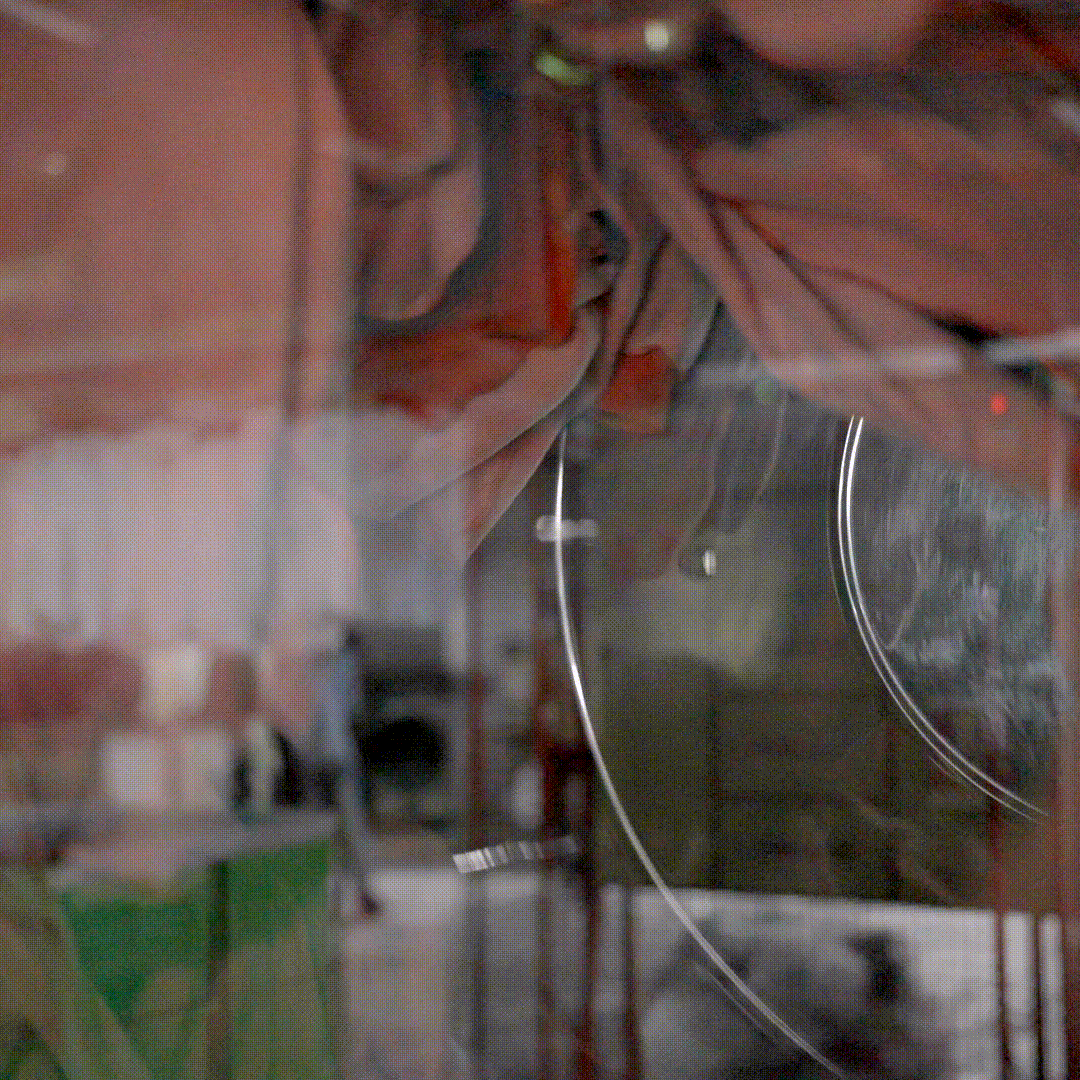
Going forward, we want to share the origins of the fabrics, accessories and dyes used in our clothes.

In 2024, we’re committed to reducing our transport emissions by 50%.
In 2024, we are committed to improving our impact across our entire supply chain.
Radical transparency:
This is something we care about – a lot. In 2023, we took you inside our factories with our Meet the Makers campaign. We make sure that the CO2 emissions produced by every product we sell are clearly stated on our website. In 2024, we want to go further. We want to share the origins of the fabrics, accessories and dyes used in our clothes. We might not get to 100%, but we’d like to try. We also want to improve our transparency by not only throwing those CO2 numbers at you, but making the carbon footprint more tangible so that we can all better understand the impact of our choices.
Reducing transport emissions:
Flying products to our warehouse was one of our biggest fuck-ups this year, and we want to change it. In 2024, we’re committed to reducing our transport emissions by 50%. Our new production process should be a major help, but we know by now that we’re not perfect. We’re still playing catch-up, so the first half of the year might not be plane-free, but our Fall/Winter ‘24 collection should be bang on time and shipped by land and sea.
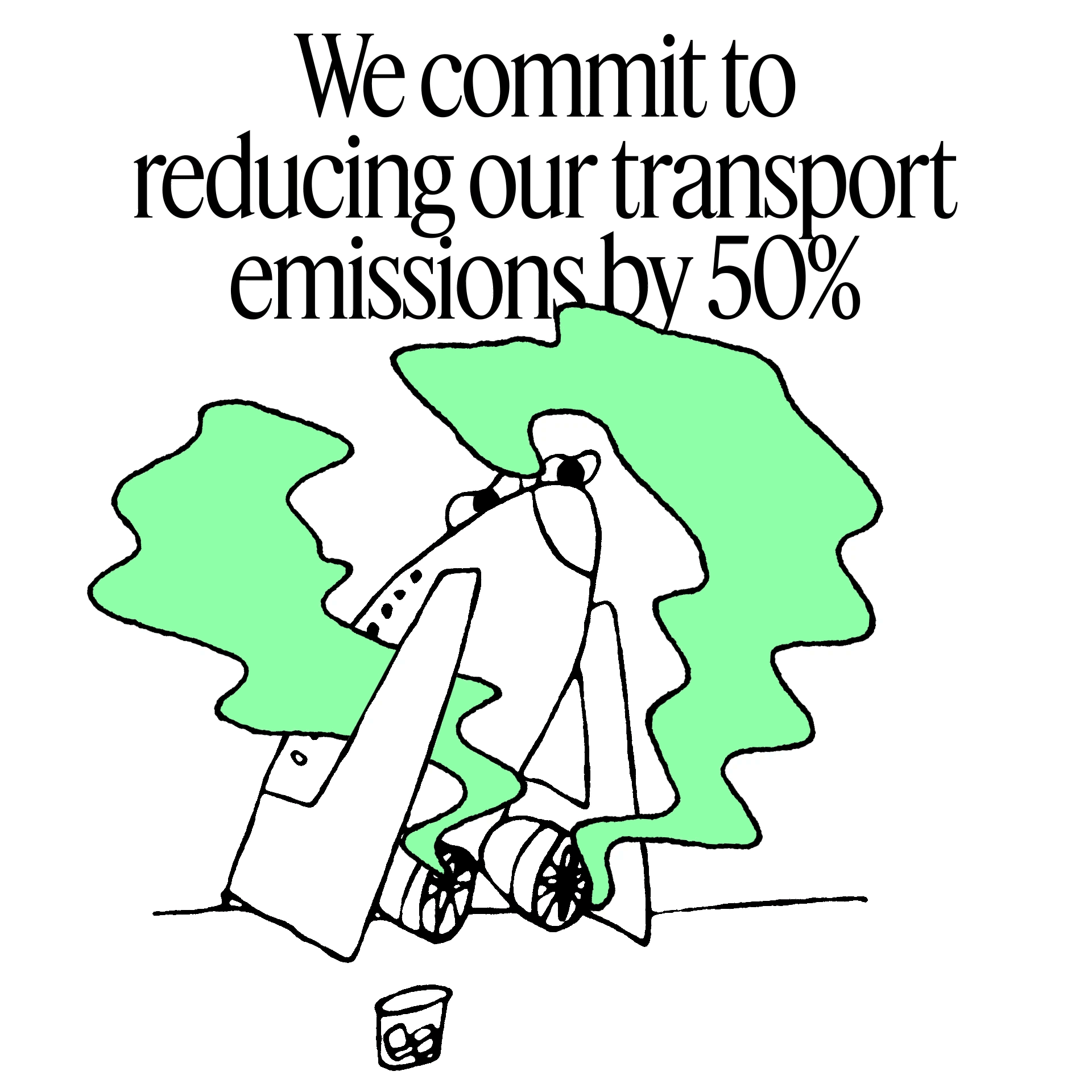
Flying products to our warehouse was one of our biggest fuck-ups this year, and we want to change it.
Overall carbon emissions:
In 2021, committed to reducing our emissions intensity by 50%. We’re not where we want to be, but we have succeeded in reducing our greenhouse gas emissions by 20% relative to our revenue. It’s progress, but we are committed to reaching and maintaining our goal to reduce our emissions by 50% relative to our revenue growth. With our production plan, new North American warehouse and lighter packaging this hope is based on serious efforts.
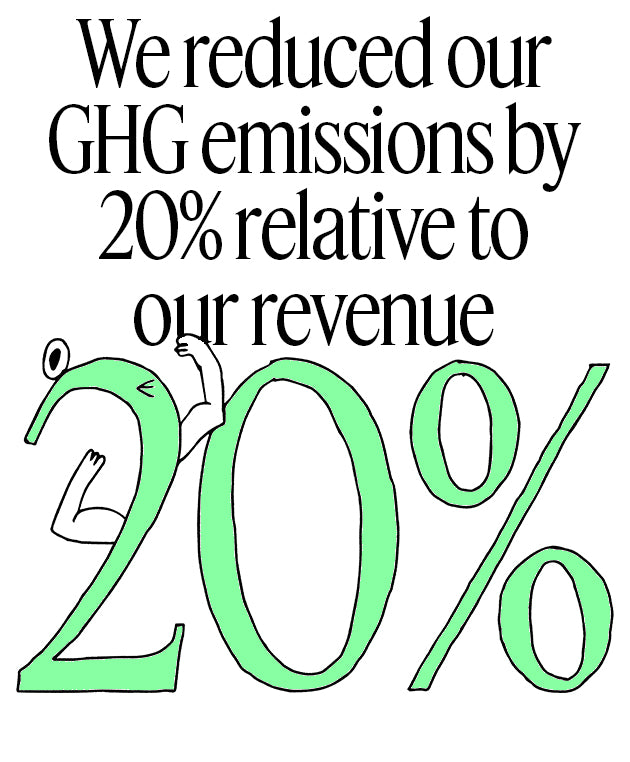
This is a figure we always want to decrease, not increase, so it’s not good enough.
Circular strategy:
We realize that clothes have an impact after they leave our warehouse. How often you wear them, and what you do with them at the end of their life really matters. In 2024, we’re committed to implementing a circular strategy. We know we aren’t ready to have a fully circular business, but we are responsible for the products we put out into the world and we need to make sure that they can be safely recycled or reused.
Inclusivity:
Offering accessible pricing is a step in the right direction, but it’s not enough. We need to do much better when it comes to accessible and inclusive sizing. Expanding our bra offering to accommodate different body shapes is something we’re proud of, but we know that we need to include a wider size offering in all of our collections. This is something we’re finally planning into future collections and we can’t wait to offer more inclusive sizing.
You made it!
Thanks for your support in 2023.
You made it!
Thanks for your support in 2023.
Please reach out to hello@organicbasics.com if you have any questions or feedback about our Impact Report.


